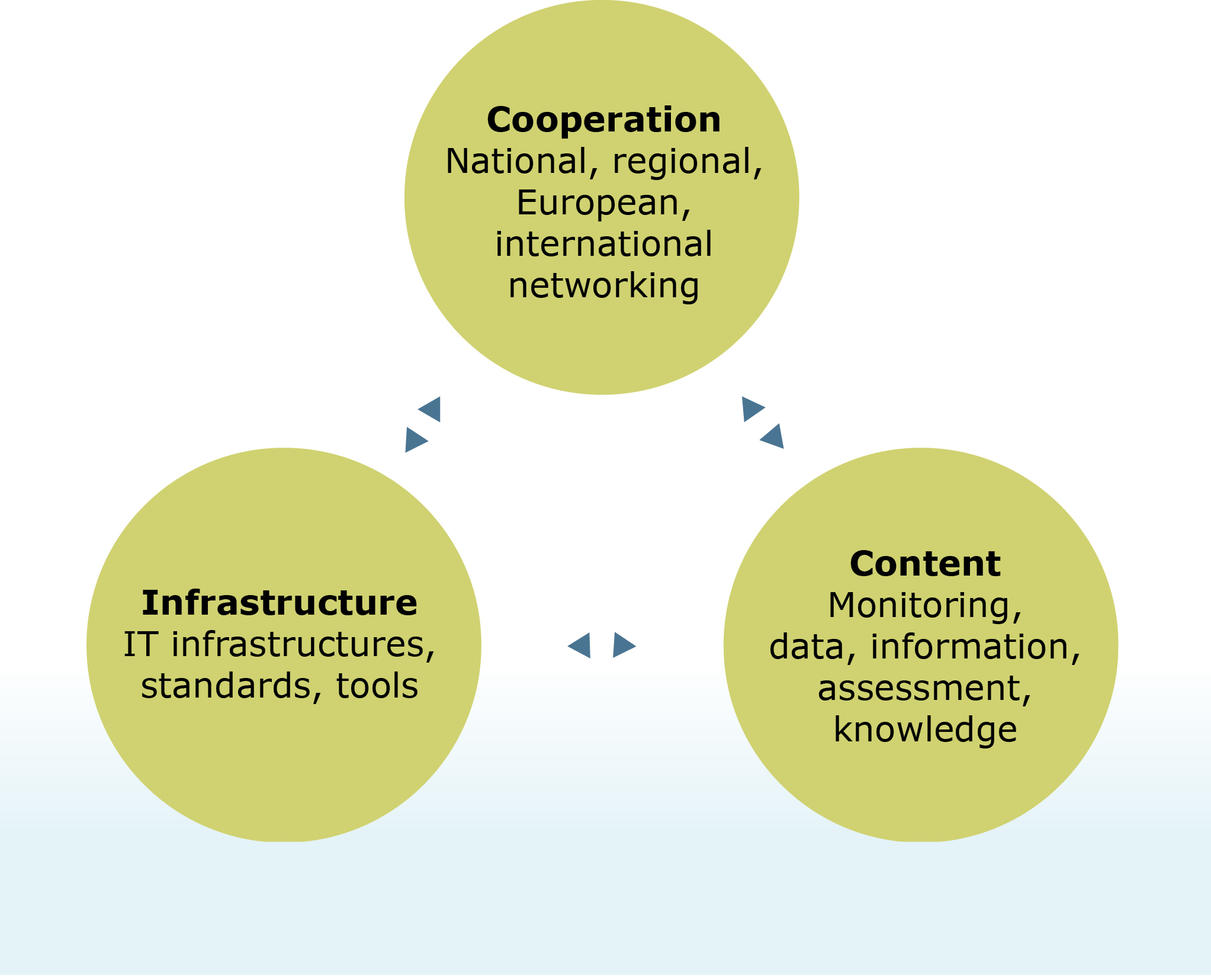The EEA is responsible for developing Eionet and coordinating its activities. To do so, the EEA works closely with national focal points (NFPs), which are typically based in national environment agencies or environment ministries. NFPs are responsible for coordinating national networks, involving many institutions.
NFPs are responsible for coordinating networks of Eionet Groups (EGs), bringing together experts from national institutions and other bodies involved in environmental information.
Taking up its work in 1994, Eionet has become a well-known and trusted provider of high‑quality data, information and assessments for Europe.
The concept of Eionet encompasses the following defining elements:
• Strong institutional cooperation across several levels (national, regional, European, international) as well as partnerships with civil society, facilitated by a coordinating entity
• Agreed common content — data, information, indicators, analysis
• Shared infrastructure, standards and tools.

Member and cooperating countries
The EEA currently has 32 member countries and six cooperating countries. The 32 member countries include the 27 European Union Member States together with Iceland, Liechtenstein, Norway, Switzerland and Türkiye.
The six West Balkan countries are cooperating countries: Albania, Bosnia and Herzegovina, North Macedonia, Montenegro, Serbia as well as Kosovo [i]. The cooperation activities of these countries are integrated into Eionet and are supported by the European Union under the Instrument for Pre-Accession Assistance.
The EEA also engages in international cooperation beyond its own member and cooperating countries.

Following the United Kingdom’s withdrawal from the EU on 31 January 2020, it ceased to be part of the EEA’s institutional networks and governance. In addition, the UK no longer participates in meetings or other coordination processes connected to the EEA’s mandate. In principle [1], the United Kingdom no longer has a legal obligation to maintain or provide information and advice, or to assist in fulfilling its obligations under EU Environmental legislation beyond the end of the transition period on 31 December 2020.
European Topic Centres
Apart from the NFPs and EGs, Eionet currently covers seven European topic centres (ETCs) in the areas of:
- Biodiversity and Ecosystems (ETC-BE)
- Climate change adaptation and LULUCF (ETC-CA)
- Resource use and circular economy (ETC-CE)
- Climate change mitigation (ETC-CM)
- Data integration and digitilisation (ETC-DI)
- Human health and the environment (ETC-HE)
- Sustainability, trends prospects and responses (ETC-ST)
More information:


Document Actions
Share with others